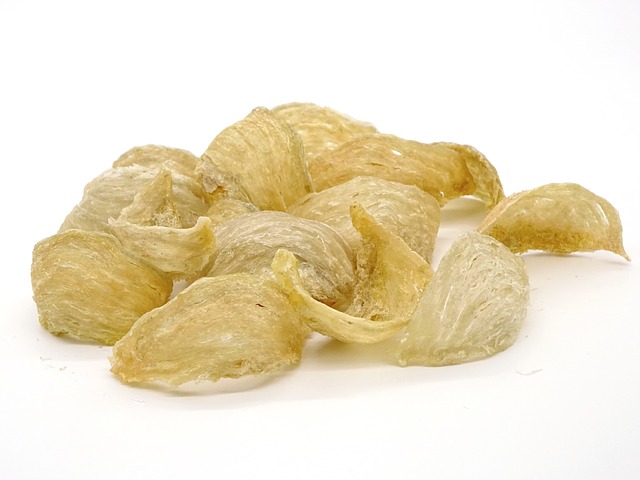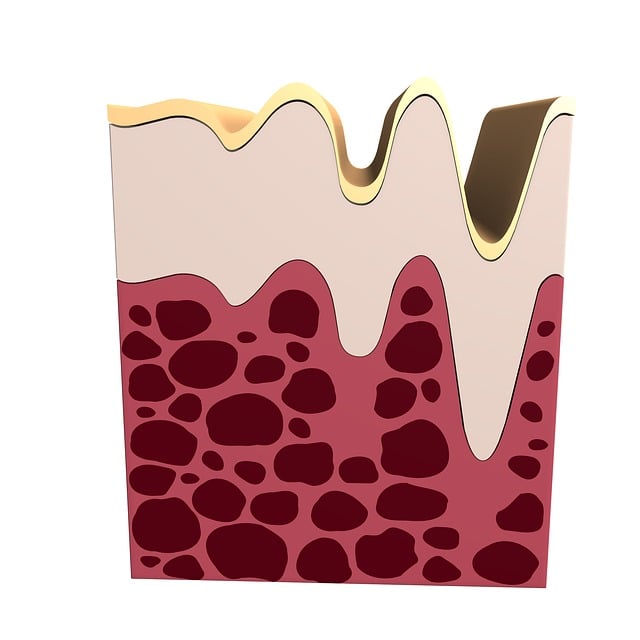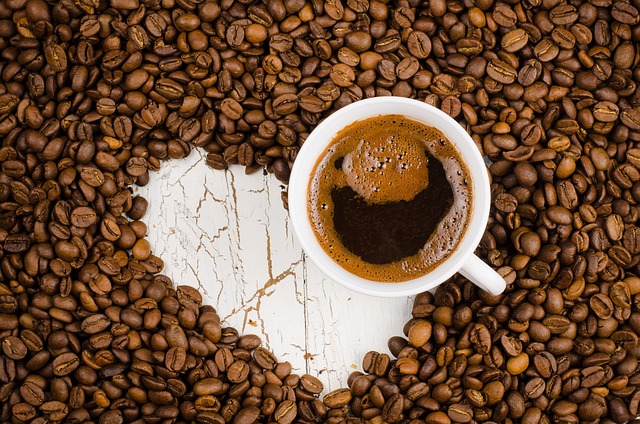Collagen stimulation is crucial for maintaining skin elasticity and a youthful appearance. This natural protein forms the structural framework of our skin, muscles, and connective tissues. As we age, collagen production decreases, leading to wrinkles, loss of firmness, and reduced hydration. Strategies to boost collagen include topical applications like peptides and vitamins that support synthesis, dietary choices rich in essential nutrients, and lifestyle habits such as regular exercise and stress management. Incorporating these practices can revitalise and renew the skin from within. Future innovations in collagen enhancement include advanced molecular structures, gene therapy, and skincare devices for more effective solutions.
Collagen is the skin’s essential building block, crucial for maintaining its elasticity and youthfulness. This article explores collagen stimulation as a key strategy for skin renewal. We’ll delve into how collagen plays a pivotal role in reversing signs of ageing, from understanding its structure to uncovering various techniques for boosting production. By examining topical applications, lifestyle adjustments, and future technologies, you’ll gain valuable insights into revitalizing your skin from within.
Understanding Collagen: The Skin's Building Block

Collagen is often referred to as the skin’s building block, playing a fundamental role in maintaining its elasticity and youthful appearance. This natural protein forms the structural framework of our skin, muscles, and other connective tissues. As we age, collagen production naturally decreases, leading to wrinkles, loss of firmness, and reduced skin hydration. Understanding collagen stimulation is crucial for harnessing the power of this essential component in promoting skin renewal.
Collagen boosting strategies focus on encouraging the body’s natural ability to produce more collagen. This can be achieved through various means, such as topical applications of certain peptides or vitamins known to support collagen synthesis, or adopting lifestyle habits that promote healthy collagen levels. By incorporating these practices into your routine, you can help revitalise and renew your skin from within.
The Role of Collagen in Skin Renewal

Collagen is a fundamental protein that plays a pivotal role in skin renewal and overall health. It forms a crucial structural framework within the skin, providing strength and elasticity. As we age, collagen production naturally decreases, leading to a variety of visible signs of aging, such as fine lines, wrinkles, and reduced skin resilience.
Collagen stimulation is therefore a key focus in skincare routines, aiming to boost the body’s natural collagen synthesis. Through various means like topical applications, certain dietary choices, and lifestyle adjustments, collagen stimulating treatments can help revitalise the skin, improving its texture, firmness, and overall youthful appearance.
Signs of Collagen Depletion and Ageing Skin

The signs of collagen depletion are often the first visible indicators of ageing skin. As we age, our bodies naturally produce less collagen, a protein essential for providing structure and elasticity to our skin. This loss of collagen leads to several telltale symptoms: fine lines and wrinkles, reduced skin firmness and elasticity, sagging skin, and a generally dull or lacklustre complexion. These changes can vary in intensity depending on factors like genetics, lifestyle, and sun exposure.
Collagen stimulation is therefore a key strategy in skincare to combat the signs of ageing. By promoting the production of collagen, it’s possible to improve skin texture, enhance elasticity, and reduce the appearance of existing wrinkles while also preventing further damage.
Collagen Boosting Techniques and Strategies

Collagen boosting techniques play a pivotal role in skin renewal. One effective strategy involves topical applications of collagen-boosting ingredients like retinol, vitamin C, and peptides. These substances stimulate fibroblasts, the cells responsible for producing collagen, leading to increased synthesis and improved skin elasticity.
Another powerful method is through non-invasive procedures such as microneedling and radiofrequency therapy. Microneedling creates tiny pricks in the skin, triggering a natural healing response that boosts collagen production. Radiofrequency technology, on the other hand, heats the deeper layers of the skin, stimulating collagen fibers to reorganize and enhance their strength. Combining these techniques with a collagen-rich diet and adequate hydration can significantly accelerate skin renewal processes.
Topical Applications for Collagen Stimulation

Collagen stimulation through topical applications has emerged as a powerful tool in the quest for skin renewal. Skincare products containing peptides, retinoids, and specific amino acids are designed to encourage the production of collagen, the structural protein that provides skin with its elasticity and firmness. These ingredients work by signaling fibroblasts, the cells responsible for collagen synthesis, to become more active.
One effective approach is the use of topical creams and serums containing vitamin C, which not only brightens the skin but also stimulates collagen production. Additionally, certain plant-based extracts like green tea and broccoli seed extract possess anti-inflammatory properties and contain bioactive compounds that can enhance collagen levels. Moreover, microneedling, a procedure that creates tiny pricks in the skin, has been shown to stimulate collagen regeneration by promoting fibroblast activity and creating a controlled injury response.
Lifestyle Changes to Support Collagen Production

To support collagen production naturally, several lifestyle changes can be implemented. One key aspect is maintaining a balanced and nutritious diet rich in vitamin C, zinc, and other essential nutrients that promote collagen synthesis. Adequate protein intake is also crucial, as proteins serve as the building blocks for collagen. Staying hydrated by drinking enough water helps maintain skin elasticity and overall health.
Regular physical activity plays a significant role in collagen stimulation. Exercise increases blood flow to the skin, delivering vital oxygen and nutrients required for collagen production. Additionally, managing stress levels through practices like yoga or meditation can positively impact skin renewal. Getting sufficient quality sleep is another important factor, as it allows the body to repair and regenerate cells, including those responsible for collagen synthesis.
Future Technologies and Innovations in Collagen Enhancement

The future of collagen enhancement is promising, with ongoing research exploring innovative technologies. One emerging approach involves the use of advanced molecular structures to target specific skin cells, stimulating collagen production at a deeper level. Another avenue delves into gene therapy, where genetic material is delivered to skin cells to increase collagen synthesis.
Additionally, technological advancements in skincare devices are revolutionizing collagen stimulation. These devices utilize a combination of light therapy, sonic waves, and targeted heat to promote cellular renewal and enhance collagen density. As these innovations continue to evolve, they hold the potential to offer more effective and accessible solutions for achieving youthful-looking skin.
